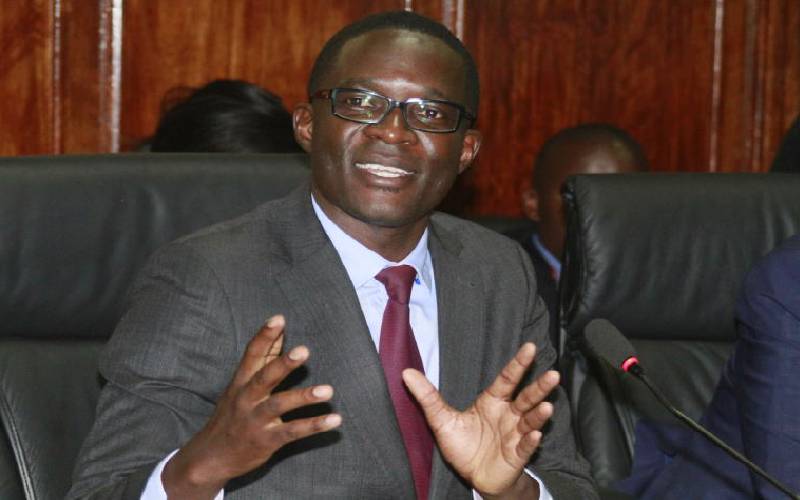×
The Standard e-Paper
Stay Informed, Even Offline
 A former Chief Executive Officer of the national electoral agency has faulted the Punguza Mizigo referendum bid being pushed by Third Way Alliance.
A former Chief Executive Officer of the national electoral agency has faulted the Punguza Mizigo referendum bid being pushed by Third Way Alliance.
In an article published by Policy House (PH), Ezra Chiloba (pictured), says the quest by Ekuru Aukot appears to be populist and taking advantage of the debate on marooning wage bill to seek public support.